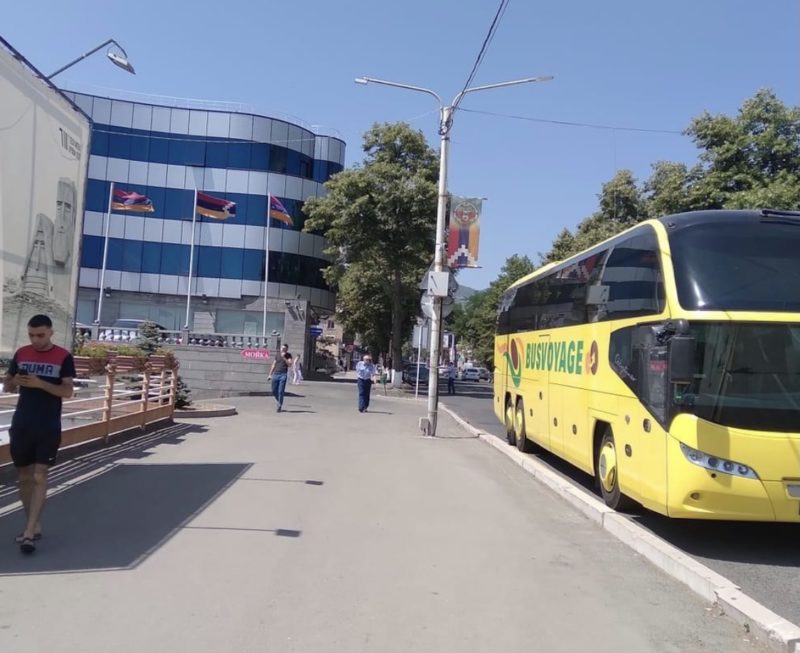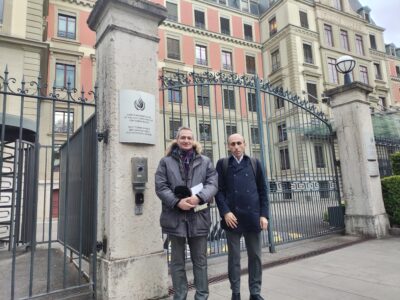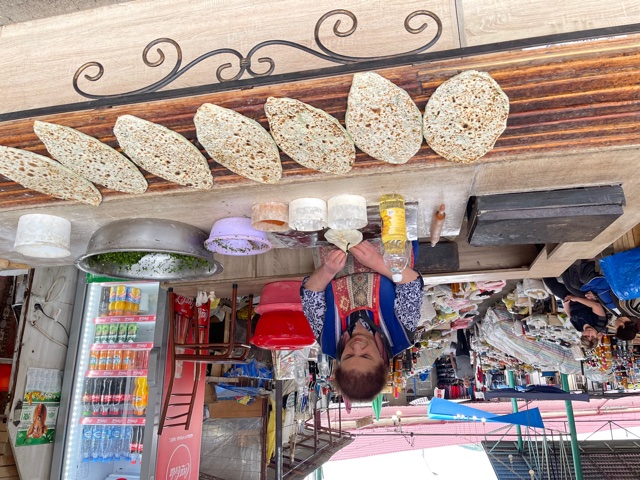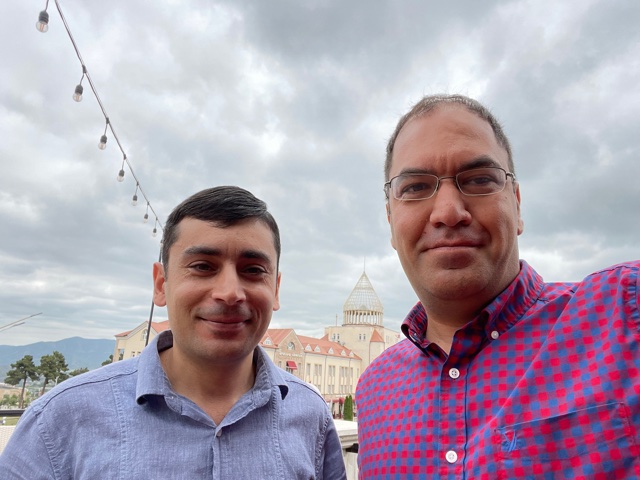STEPANAKERT/WASHINGTON – Every day Zorik Babayan sells souvenirs near Stepanakert’s iconic We Are Our Mountains (aka Grandmother and Grandfather) monument. When I approached him last month, there was only a small group of tourists, although the site was more crowded during my previous visits. Tourists from the US, Europe, or even China were not uncommon in Artsakh before 2020.
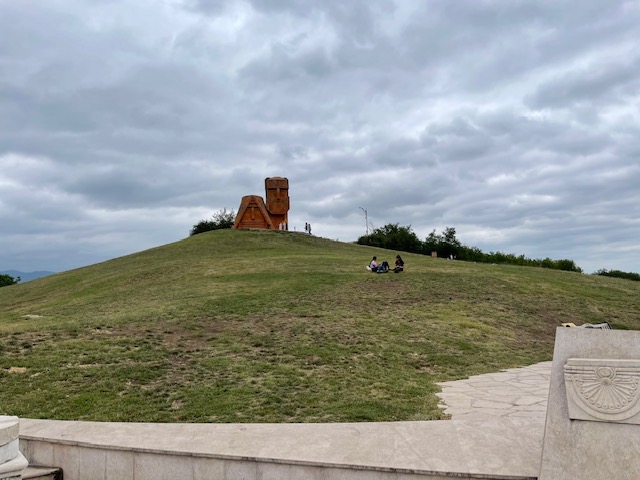
“First coronavirus hit us. The borders were basically locked for months. Then the war started. We have had almost no tourists here last year. Now we have some visitors – a tiny number compared to what used to be before,” said Babayan.
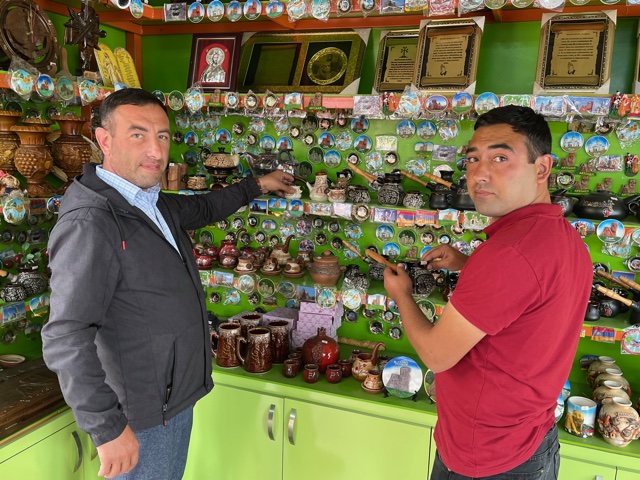
Perhaps another reason why there are fewer visitors is that the number of accessible tourist sites has been reduced due to the most recent aggression. More precisely, Shushi is under occupation, Tigranakert’s millennia-old archeological site and museum are lost, and Dadivank is accessible to only a limited number of pilgrims who must await quite a process of negotiations that the Russian peacekeepers have to conduct with the Azerbaijanis each time.
However, Artsakh has had a vibrant history, and therefore, despite losses, Karabakh still has many ancient monuments scattered throughout this millennia-old land, from Gandzasar Monastery to Amaras, where Mesrop Mashtots had set up a school 16 centuries ago. “Visit Artsakh, so that 100 thousand Armenian compatriots of this land will not feel they are abandoned,” wrote Artsakh’s Human Rights Defender Gegam Stepanyan on his Facebook page on June 29.
In Stepanakert’s market, I met Donara Ghazaryan, whom I interviewed during my previous trip to Artsakh in 2019. As before, she bakes and sells the delicious zhengyalov hatz – Artsakh’s authentic flat-bread rolls stuffed with herbs – right at the market center.
“During the combats, I was not selling zhengyalov hatz, she said. “I was collecting the herbs and baking rolls for the soldiers, not for sale. One day I was not here, and the missile struck the market. The explosion broke my fridge. Luckily we were not here; however, I had to buy a new fridge,” said Donara, pointing to the new refrigerator next to her.
